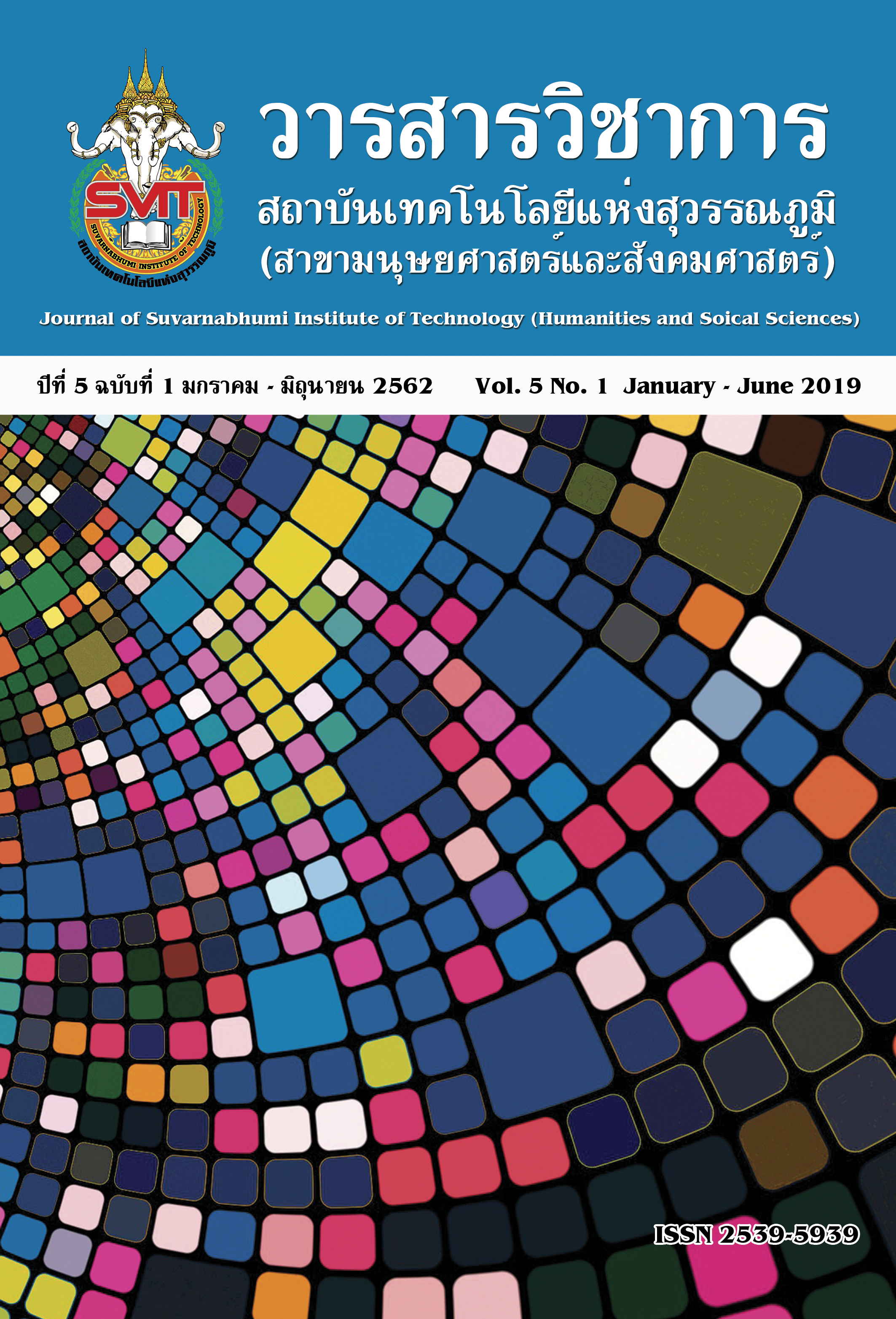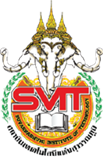แนวทางการพัฒนาการบริหารเชิงกลยุทธ์ด้านการจัดการสินทรัพย์ตามหลักธรรมาภิบาลของโรงเรียนมัธยมศึกษาในภาคตะวันออกเฉียงเหนือ
คำสำคัญ:
การบริหารเชิงกลยุทธ์, การจัดการสินทรัพย์, หลักธรรมาภิบาลบทคัดย่อ
บทคัดย่อ
วัตถุประสงค์ของการวิจัยนี้มีวัตถุประสงค์ 1) เพื่อศึกษาสภาพการณ์ 2)เพื่อวิเคราะห์ความสัมพันธ์ 3) เพื่อนำเสนอแนวทางการพัฒนาการบริหารเชิงกลยุทธ์ด้านการจัดการสินทรัพย์ตามหลักธรรมาภิบาลของโรงเรียนมัธยมศึกษาในภาคตะวันออกเฉียงเหนือกลุ่มตัวอย่าง(Sample) คือ ผู้อำนวยการโรงเรียนและครูโรงเรียนมัธยมศึกษา สังกัดคณะกรรมการการศึกษาขั้นพื้นฐาน ในเขตภาตะวันออกเฉียงเหนือโดยจำแนกเป็นผู้อำนวยการโรงเรียนมัธยมศึกษา จำนวน 269 คน และครูผู้สอน จำนวน 269 คน รวมทั้งหมด จำนวน 538 คนสถิติที่ใช้ในการวิเคราะห์ข้อมูล ได้แก่ ความถี่ (Frequency) ค่าเฉลี่ย (Mean) ร้อยละ(Percentage) ส่วนเบี่ยงเบนมาตรฐาน (Standard Deviation : SD) การวิเคราะห์ถดถอยเชิงพหุคูณ (Multiple Regression Analysis : MRA) ผลการวิจัยพบว่าสภาพการณ์การบริหารเชิงกลยุทธ์และองค์ประกอบอยู่ในระดับมาก มีค่าเฉลี่ยตัวแปรหลักเท่ากับ 3.94 การจัดการสินทรัพย์และองค์ประกอบอยู่ในระดับมาก โดยมีค่าเฉลี่ยการบริหารสินทรัพย์ = 4.27 หลักธรรมาภิบาลและองค์ประกอบอยู่ในระดับมาก โดยมีค่าเฉลี่ยหลักธรรมาภิบาล = 4.02 ความสัมพันธ์ระหว่างตัวแปรหลักทั้งสามตัวแปร มีลักษณะความสัมพันธ์ไปในทิศทางเดียวกันอยู่ในระดับปานกลางถึงระดับมากอย่างมีนัยสำคัญทางสถิติ .01 โดยการบริหารเชิงกลยุทธ์ และการจัดการสินทรัพย์ มีความสัมพันธ์ไปในทิศทางเดียวกันอยู่ในระดับปานกลางอย่างมีนัยสำคัญทางสถิติ .01 โดยมีค่า r = .586 การบริหารเชิงกลยุทธ์ และหลักธรรมาภิบาลมีความสัมพันธ์ไปในทิศทางเดียวกันอยู่ในระดับมากอย่างมีนัยสำคัญทางสถิติ .01 โดยมีค่า r = .844 การจัดการสินทรัพย์และหลักธรรมาภิบาล มีความสัมพันธ์ไปในทิศทางเดียวกันอยู่ในระดับมากอย่างมีนัยสำคัญทางสถิติ .01 โดยมีค่า r = .741แนวทางการพัฒนาการผู้ทรงคุณวุฒิยังมีความคิดเห็นไปในทิศทางที่เป็นไปได้สำหรับการนำไปลงมือปฏิบัติระหว่างร้อยละ 75.00 ถึง 100 โดยเน้นความเป็นไปได้ในทางปฏิบัติด้าน การกำหนดแนวปฏิบัติด้านการจำหน่ายพัสดุที่ชำรุดควรรับฟังความคิดเห็นจากทุกฝ่ายโดยเฉพาะครู และบุคลากรในโรงเรียนเพื่อส่งเสริมให้การจัดการสินทรัพย์เป็นไปตามหลักธรรมาภิบาล และด้านการนิเทศ ติดตาม และการตรวจสอบสภาพการใช้งานของพัสดุโรงเรียนจำเป็นต้องดำเนินการเป็นประจำอย่างต่อเนื่องในรูปของคณะกรรมการซึ่งถือว่าเป็นไปตามหลักธรรมาภิบาล
เอกสารอ้างอิง
คณะกรรมการการศึกษาขั้นพื้นฐานแห่งชาติ. (2550). แนวทางการกระจายอำนาจบริหารและการจัดการศึกษาให้คณะกรรมการสำนักงานเขตพื้นที่การศึกษาและสถานศึกษา ตามกฎกระทรวง กำหนดหลักเกณฑ์และวิธีการกระจายอำนาจการบริหารและการจัดการศึกษา พ.ศ. 2550. กรุงเทพฯ: ชุมนุมสหกรณ์การเกษตรแห่งประเทศ.
ธีระ รุญเจริญ. (2556). การบริหารโรงเรียนยุคปฏิรูปการศึกษา. (พิมพ์ครั้งที่ 3). กรุงเทพฯ : ข้าวฟ่าง.
พนัชกร บำเรอพงษ์. (2554). รูปแบบการบริหารจัดการทรัพยากรทางการศึกษาเพื่อพัฒนาคุณภาพการศึกษาของโรงเรียนขนาดเล็กในภาคตะวันออกเฉียงเหนือ.วิทยานิพนธ์ปริญญาดุษฎีบัณฑิตไม่ได้ตีพิมพ์, มหาวิทยาลัยการจัดการและเทคโนโลยีอีสเทิร์น.
รุ่ง แก้วแดง. (2546). ปฏิวัติการศึกษาไทย. กรุงเทพฯ: สำนักพิมพ์มติชน.
สถาบันวิจัยเพื่อพัฒนาประเทศไทย. (2553). รายงานทีดีอาร์ไอ : ทางเลือกของสวัสดิการสังคมสําหรับคนไทย ฉบับที่ 87 เดือนตุลาคม 2553. สืบค้นเมื่อ 9 มีนาคม 2555
สำนักงานปฏิรูปการศึกษา. (2545). แนวทางการบริหารและการจัดการศึกษาในเขตพื้นที่การศึกษาและสถานศึกษา.กรุงเทพฯ : พิมพ์ดี จำกัด.
Ibtism Abu-Dohon. (1999). School-base Management. France: Unesco. Paris.
IMD. (2003), The World Competitive Year Book 2003. Available at https://www.01.Imd.ch/wcy/factors/accessed on 2/9/2003.
Julie Siciliano and Peter Hess. (2009). The E - Strategy case: closing the Gap Between Strategy Formulation and Strategy Implementation. The Journal of Business Case and Applications. Winter,pp 46-53
Law Song Seng. (2005). Dynamics and Challenges in Vocational Education and Training- the Singapore experience. China.
ดาวน์โหลด
เผยแพร่แล้ว
ฉบับ
ประเภทบทความ
สัญญาอนุญาต
บทความที่ได้รับการตีพิมพ์เป็นลิขสิทธิ์ของวารสาร Sarasas Journal of Humanities and Social Science ข้อความที่ปรากฏในบทความแต่ละเรื่องในวารสารวิชาการเล่มนี้เป็นความคิดเห็นส่วนตัวของผู้เขียนแต่ละท่านไม่เกี่ยวข้องกับสถาบันสารสาสน์เทคโนโลยีแห่งสุวรรณภูมิแต่อย่างใด ความรับผิดชอบองค์ประกอบทั้งหมดของบทความแต่ละเรื่องเป็นของผู้เขียนแต่ละท่าน หากมีความผิดพลาดใดๆ ผู้เขียนแต่ละท่านจะรับผิดชอบบทความของตนเองแต่ผู้เดียว




